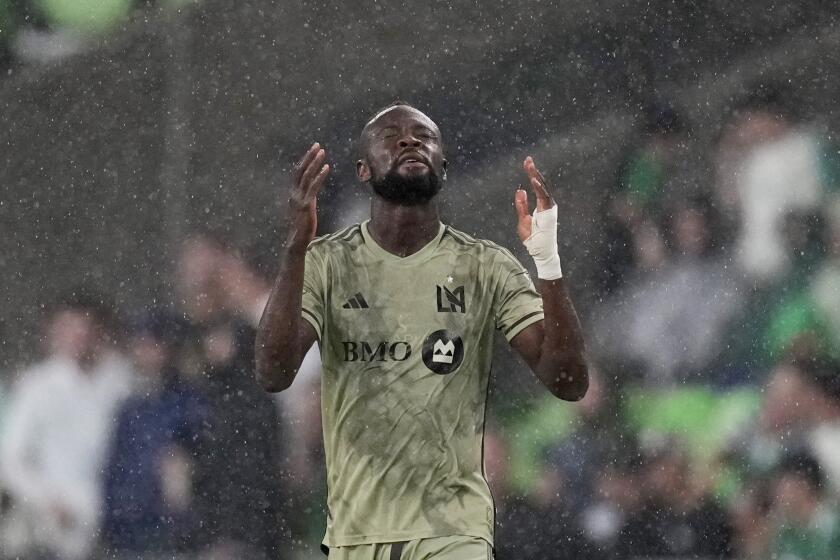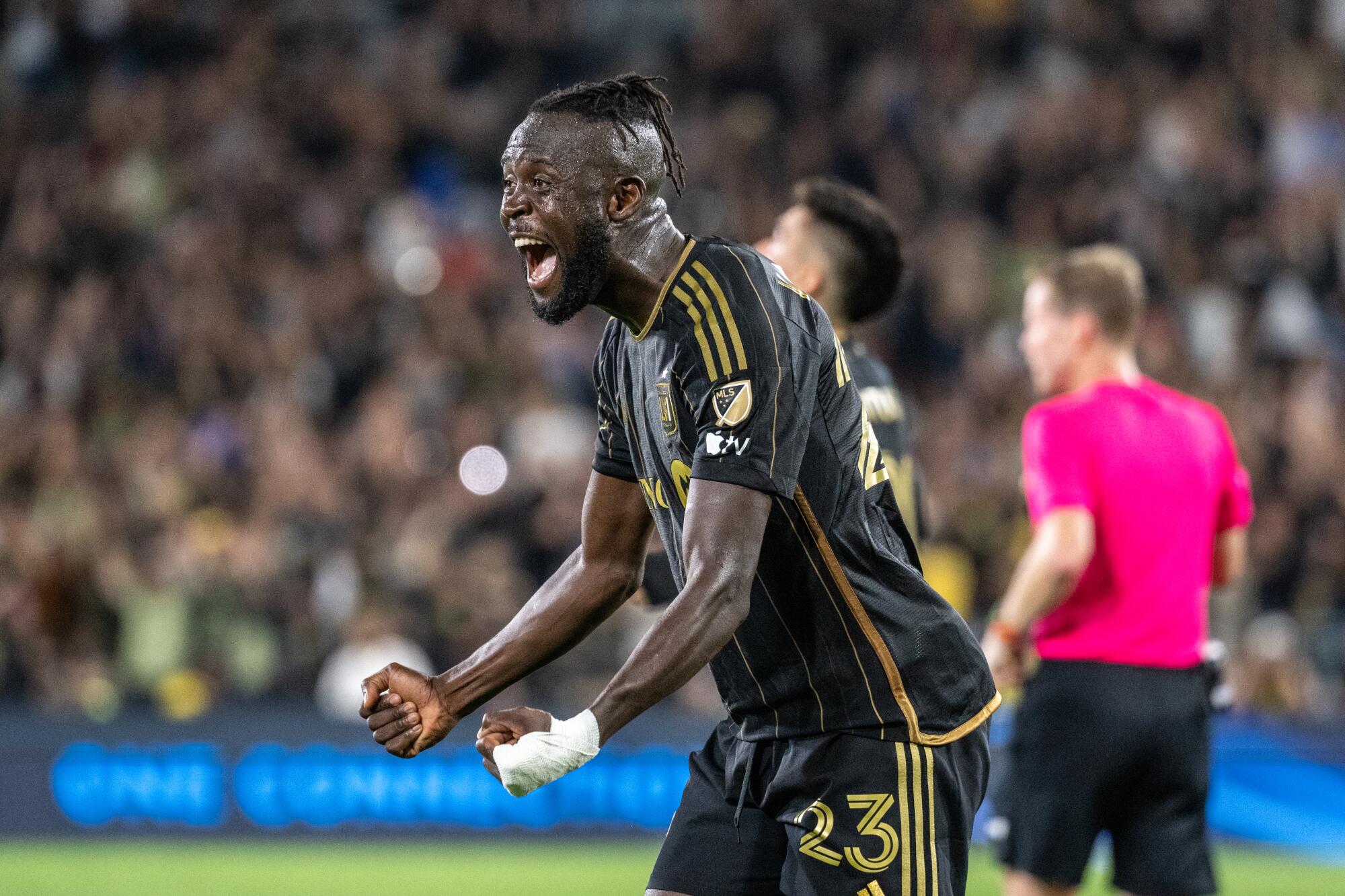
- Share via
The explosion outside of his school. The vultures feasting on corpses in the streets. The water gushing into the boat that was ferrying him to safety.
The images of war remain with Kei Kamara to this day.
The LAFC striker pictures them whenever he shares the story of his childhood in Sierra Leone. He often sees them in his dreams.
“I get these nightmares,” Kamara said. “I’m always running. I’m always running from chaos.”
The memories continue to haunt the 39-year-old Kamara, but they also have convinced him of how fortunate he is.
So rather than be disenchanted with how he’s switched teams more than a dozen times in his career, he celebrates how someone has always wanted him.
The schedule (24 games in 20 weeks) has been less of a grind this season for LAFC, allowing the club to make the U.S. Open Cup a bigger priority.
So instead of complaining about how he played irregularly last year with the Chicago Fire, he points out how his diminished role allowed him to score a milestone goal this year while playing for his hometown team.
“I’m this kid who ran away from a civil war,” Kamara. “I should not be here.”
Here, in his 19th year in professional soccer.
Here, with a resume that includes a stop in the English Premier League.
Here, in second place all-time in career goals in Major League Soccer, one spot ahead of Landon Donovan.
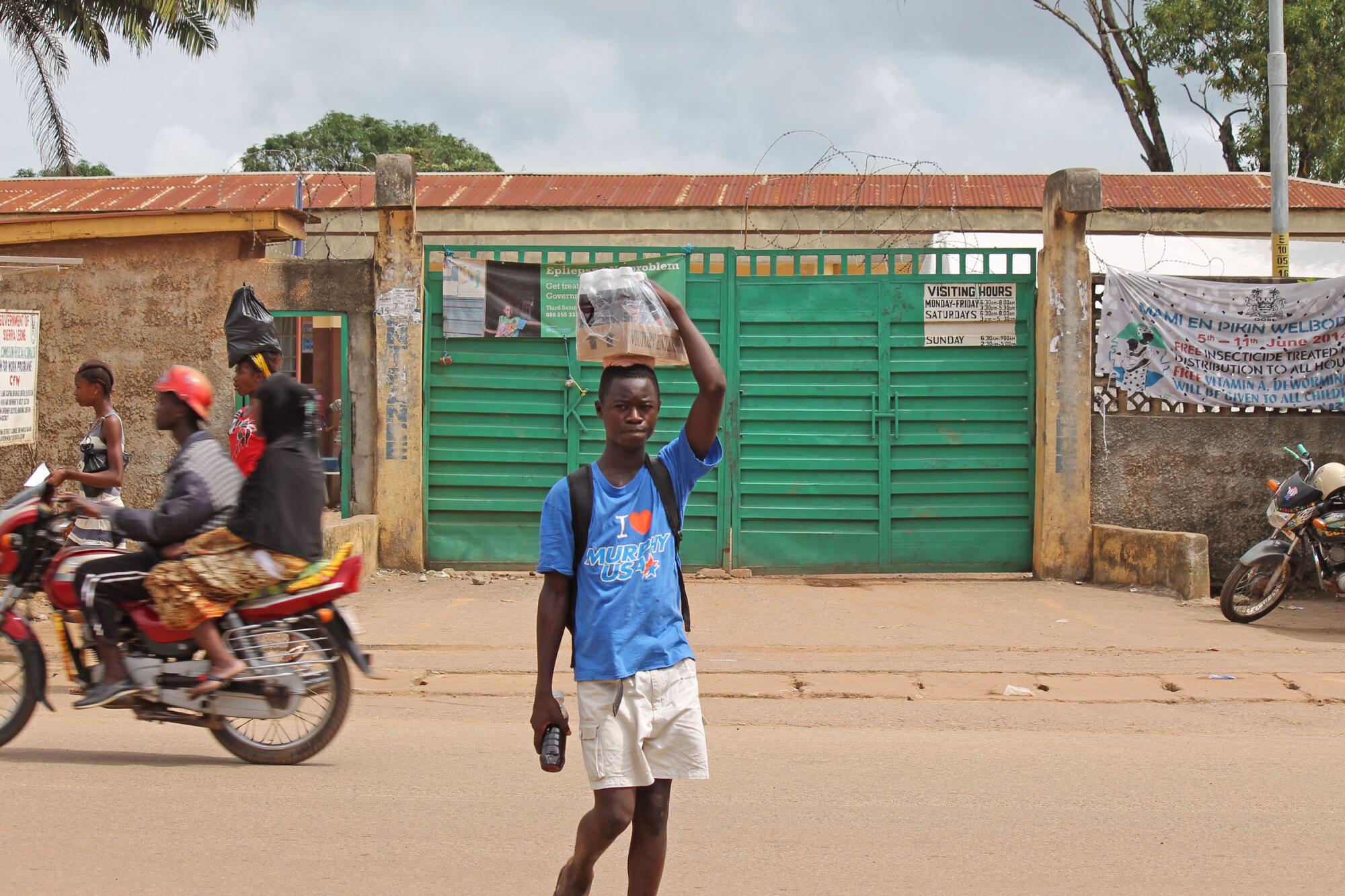
Kamara was living in the Sierra Leone town of Kenema when his mother won an immigration lottery that permitted her to move to the United States. He was left with an aunt, who was one of five wives in a polygamous family that included about three dozen children. Kamara considered them to be brothers and sisters, adding that he didn’t know what a cousin was at the time. They played soccer on the family compound’s courtyard or on the 6-foot-wide path between adjacent buildings on the property.
But their lives were about to be disrupted, as a civil war that broke out on the Liberian border moved into the cities.
Kamara was in school when he heard the explosion that changed everything. A grenade had detonated outside.
“I remember running out of school, running into this little alleyway,” he said. “Kids were falling down and we were jumping over each other. I’m getting close to home and I realize I left my brothers and sisters. So I had to turn back around and run through the crowd. They were sitting in class.
“I don’t think there was a calm time after that.”
Kenema became dangerous. Rebel forces swept the streets for potential child soldiers, and Kamara said two of his cousins were captured.
“We never got to see them again,” he said.
His family moved to Sierra Leone’s capital of Freetown, but the conflict followed them.
“When there were gunshots, we all ran in the house,” he said. “When it was done, you’d hear neighbors and people crying because they lost family members. You could see their bodies.”
A temporary cease-fire presented Kamara and some of his family members with a chance to escape. Before they could board a plane to Gambia, however, they had to cross the Sierra Leone River by boat.
“It’s built with wood, so there’s always water coming in,” Kamara said. “I remember there were people with buckets bailing the water out. I remember thinking, ‘We’re not going to make it out, we’re going to drown.’”
Kamara spent close to two years in Gambia, after which he and his relatives were granted asylum in the United States. He first set foot in this country on Oct. 26, 2000.
“I will never forget that day,” he said.
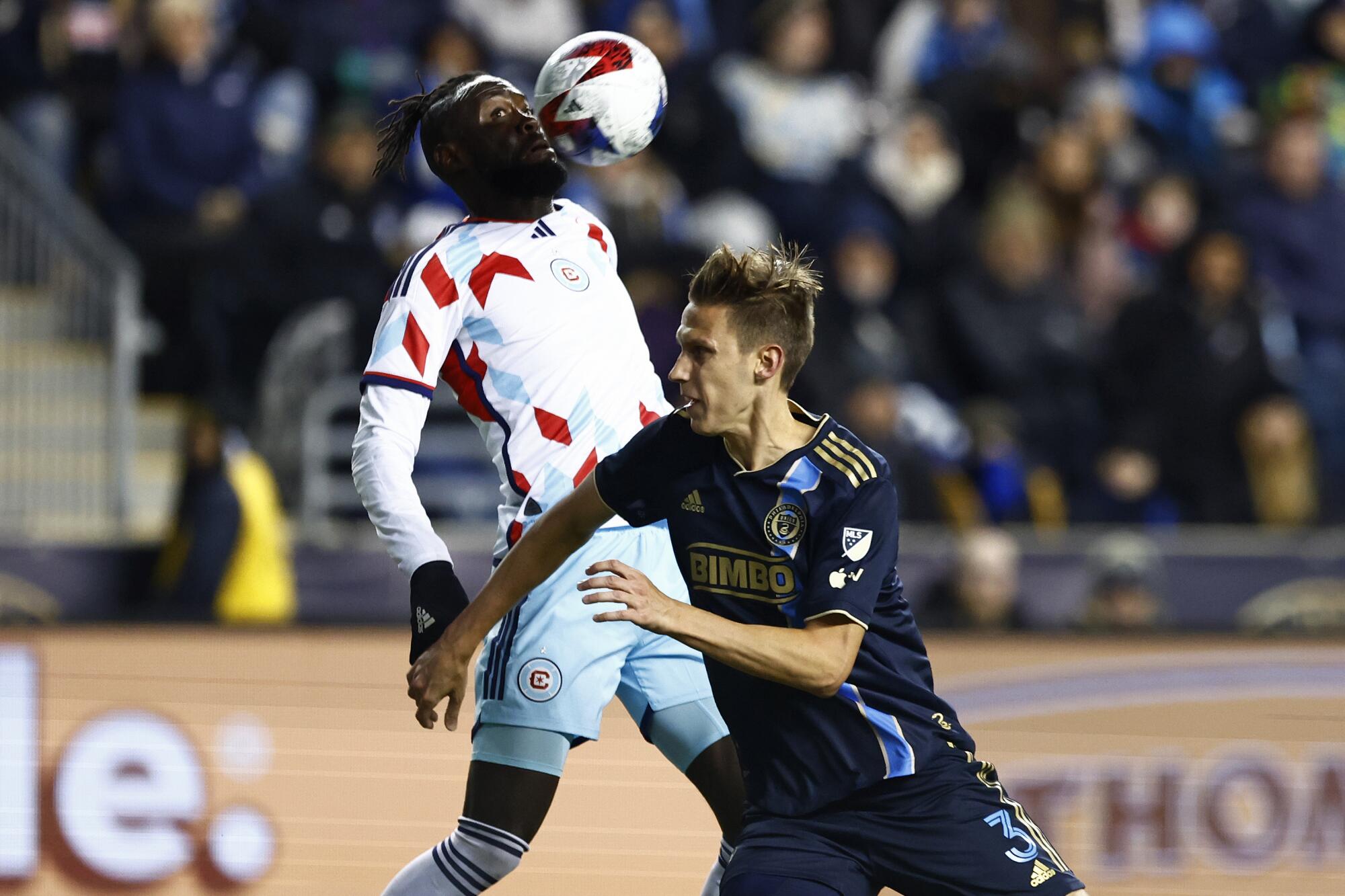
Kamara initially lived with an uncle in Maryland. The arrangement lasted only a couple of months, and Kamara moved across the country to be with his mother in Hawthorne.
“It wasn’t all peaches and cream,” Raphael Saye said.
Kamara’s and Saye’s mothers were close friends, and Saye’s mother often looked after Kamara when his mother worked nights as a waitress at the Normandie Casino. Kamara came to refer to Saye as his brother.
“He had to deal with being different at school,” Saye said. “Being African, he had an accent. His mannerisms were different.”
Kamara enrolled at Leuzinger High in Lawndale, where he crossed paths with future NBA players Dorell Wright and Russell Westbrook. Kamara found his place on the soccer field. Classmate Cristian Olvera insisted he try out for his youth club, the Manhattan Beach Hurricanes.
“After 10 minutes, I just remember saying, ‘Oh my goodness, we’ve struck gold.’ He just did things that were jaw-dropping,” said Hurricanes coach Bruce Myhre.
Because Kamara’s mother worked nights, Myhre joked, “I ended up being his chauffeur.”
Twice a week, Myhre picked up Kamara in his silver Nissan Pathfinder to drive him to practice in Manhattan Beach. He also drove him to games.
“That’s when I first started to find out his story,” Myhre said.
Myhre became a father figure to Kamara and made sure college coaches knew about him. One of them was Joe Flanagan, who at the time headed the program at Division II Cal State Dominguez Hills.
When Kamara was a high school senior, Flanagan ran into him at Dominguez Hills. Kamara had applied to the university and was on his way to Flanagan’s office to inform him that he wanted to play there.
“Kei was all over it,” Flanagan said.
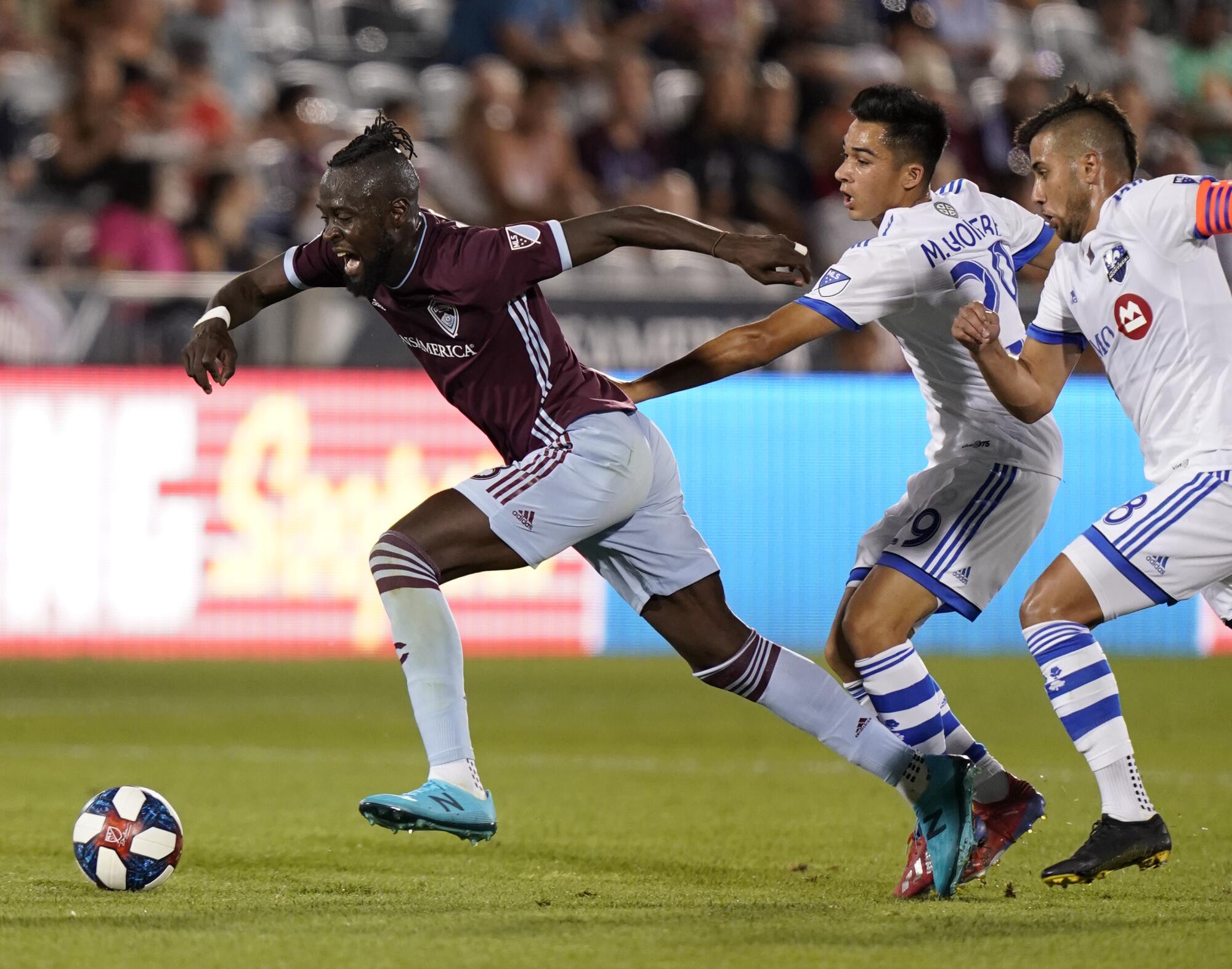
Kamara had a plan. The Galaxy’s new stadium was on the Dominguez Hills campus. Expansion team Chivas USA was about to join them as a tenant in what was then called the Home Depot Center.
“If I want to play pro, this is probably the best place to go,” Kamara recalled thinking at the time.
Kamara found work at the stadium. He erected the goals. He placed the corner flags. He set up the advertising boards that lined the field.
“He was the first one to get a job and we didn’t understand why,” said Saye, who also enrolled at Dominguez Hills.
Kamara made it a point to become acquainted with Galaxy players. He was soon on a first-name basis with then-Galaxy coach Sigi Schmid.
“I had my soccer shoes in the back of my car all the time,” Kamara said.
The memories elicited a chuckle from Flanagan.
“He was a go-getter,” Flanagan said.
In time, Galaxy players occasionally invited him to kick the ball around with them. After scoring 16 goals as a freshman and 15 as a sophomore, Kamara declared for the 2006 MLS draft.
He was selected with the ninth pick by the Columbus Crew. Schmid was the team’s coach.
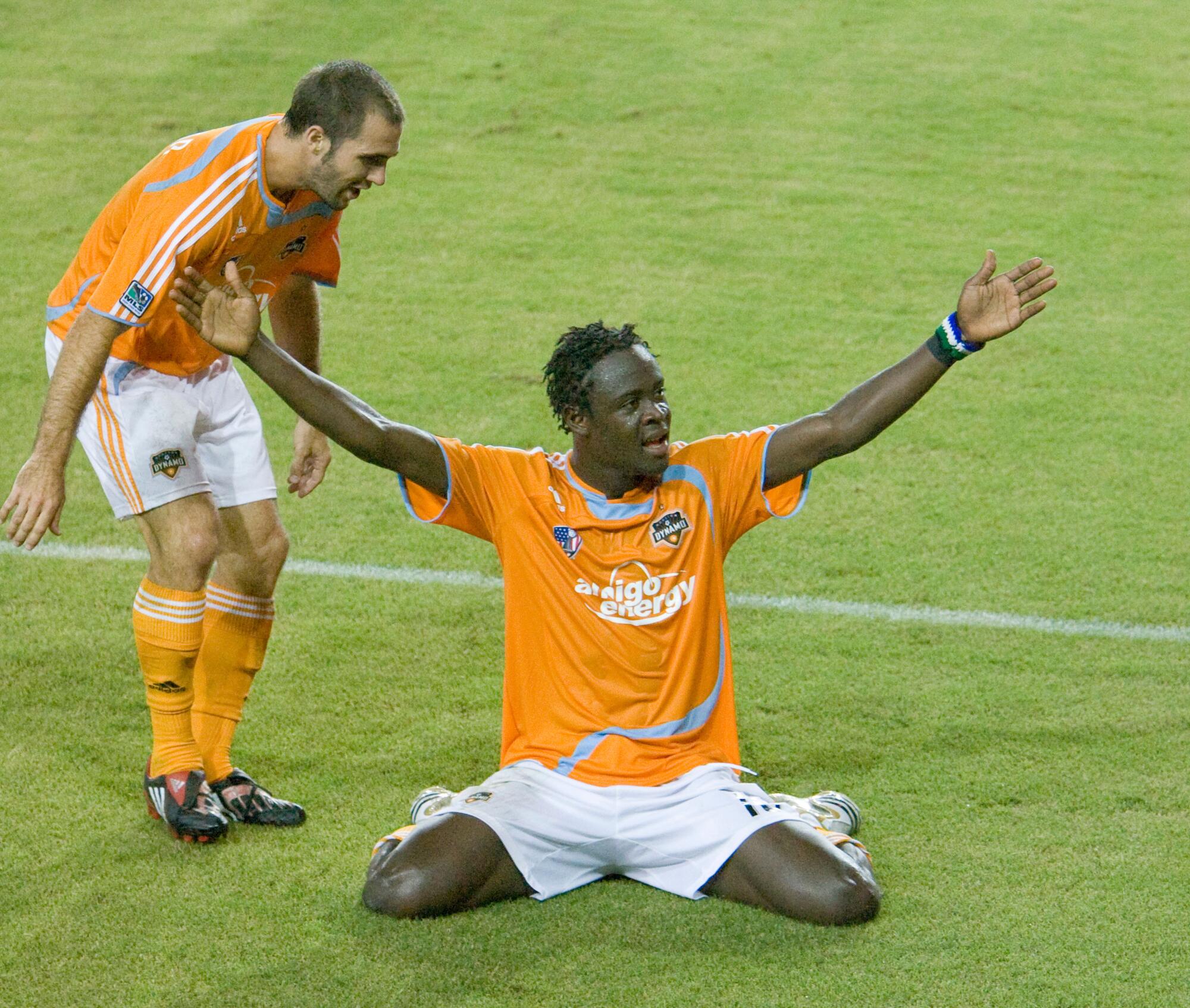
Kamara has played for 11 MLS teams. He’s played in Finland. He’s also played in England, including half a season with Norwich City in the Premier League.
One of his most cherished memories was of playing at Old Trafford. Kamara had visited the stadium the previous year as a spectator.
“A few months later, I’m downstairs with Norwich City playing against Manchester United,” Kamara said. “I’m looking all the way up, like, ‘I was just sitting there in December and now I’m down here.’”
He has a similar sense of wonder when he reflects on how he ended up with LAFC. In March, he was back in Sierra Leone, doing work for his HeartShapedHands Foundation, which serves children in his homeland. Kamara represented the country 39 times before retiring from international soccer in 2022.
Just when he thought his club career might also be over, his agent called to inform him of LAFC’s interest. There was one caveat: He had to try out.
“I did it because it was LAFC,” Kamara said.
Kamara rushed home. He signed a few days later.
Three weeks ago, in a game against the San Jose Earthquakes at BMO Stadium, the 6-foot-3 Kamara scored the kind of goal he’d scored so many times before, soaring over a defender and heading the ball into the back of the net.
The goal was his second of the season and 146th of his MLS career. Donovan, the U.S. national team’s all-time co-leader in goals, retired with 145 goals in MLS.
Kamara scored his 147th two weeks later at the Rose Bowl against the Galaxy.
“There’s just something so beautifully serendipitous,” said Myhre, his youth coach.
Kamara offered a similar view.
“I think it was destined to happen now,” he said. “Because it could have happened last year in Chicago. And it could have happened on the road. And finally to happen here, at home, in front of friends and family, it’s a storybook that I couldn’t have dreamed of.”

